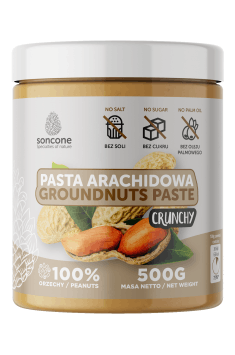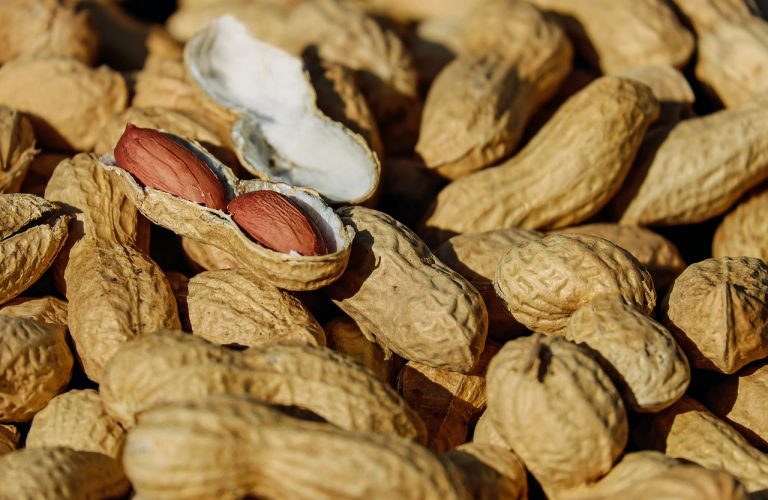There are many insinuations and myths around the peanuts - from the pro-inflammatory properties to the popular claims that peanuts are actually pods.
So how is it with them?
Indeed, from a botanical point of view, peanuts are not nuts. However, following this line of thinking, among others walnuts, brazil nuts or almonds are also not nuts. All these types of foods have been included in one group, including due to similar nutritional values.
However, apart from the proper belonging of peanuts to pods or nuts - their consumption is associated with a significantly reduced risk of premature death (in particular as a result of cardiovascular disease). A meta-analysis of 10 prospective studies showed that people regularly consuming a portion of nuts (including peanuts), have a 44% lower risk of cardiovascular disease, compared to people who reach it extremely rarely.

Why is it believed that we should give up peanuts?
The argument against the consumption of peanuts is the content of omega-6 fatty acids, which are supposed to be pro-inflammatory. However, without starting the biochemical essay, it is sufficient to mention that they belong to the essential unsaturated fatty acids that must be supplied with food. In addition - not all acids belonging to the omega-6 group initiate inflammatory reactions. What's more, most of them, on the contrary - have anti-inflammatory properties. Unless their consumption is extremely high, there is nothing to worry about. Peanuts are not an extremely rich source of omega-6 fatty acids.
Phytic acid is another problematic component of peanuts, the content of which discourages individuals from their regular consumption. Indeed, phytic acid may inhibit the absorption of iron, calcium and zinc. However, it has its own advantages and paradoxically protects against the loss of bone mineral density or osteoporosis. It has a strong antioxidant effect and inhibits the absorption of heavy metals from the gastrointestinal tract - so it can be a valuable ingredient diets 6.8. In fact, people at risk (such as women who usually supply too little iron from the diet and vegans) may pay attention to the phytic acid content. It should be noted, however, that with a properly composed diet, its anti-nutritional properties are not a problem.

And the effect on reducing body fat?
As it turns out, eating peanuts can help maintain normal body weight and reduce the risk of obesity . They are rich in protein and fiber, so they can help control hunger, increasing the feeling of satiety. Paradoxically, regular consumption of nuts (despite high calorie content) is not conducive to gaining extra pounds.
Sometimes elimination is necessary ...
Peanuts, however, are also a strong allergen. Unfortunately, allergy to this ingredient is a serious health problem around the world and it is considered to be potentially life threatening. 10. People with peanut allergies should avoid them and pay attention to the products containing them.
Summary
Contrary to common beliefs about peanuts, the habit of handfuls of nuts (not only peanuts) per day is highly pro-health and there is no convincing evidence for the exclusion of them from the menu. Most often, fear of them is unjustified.






